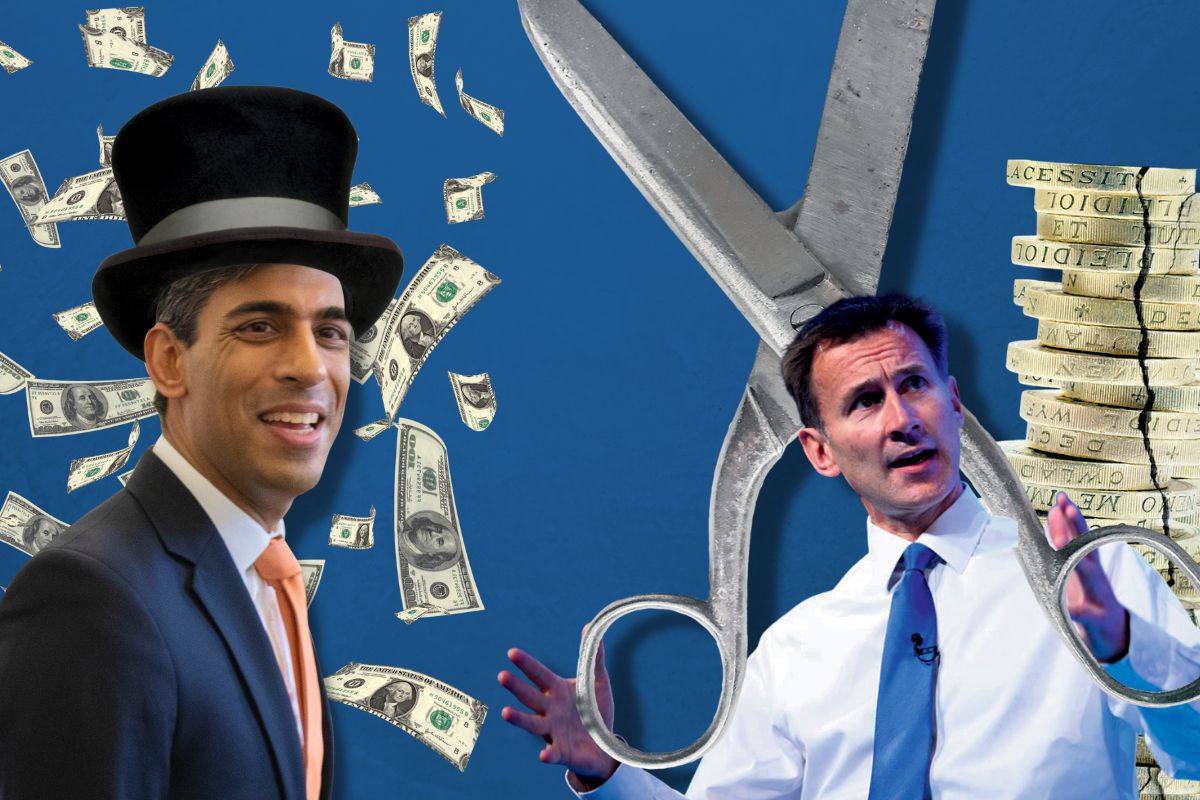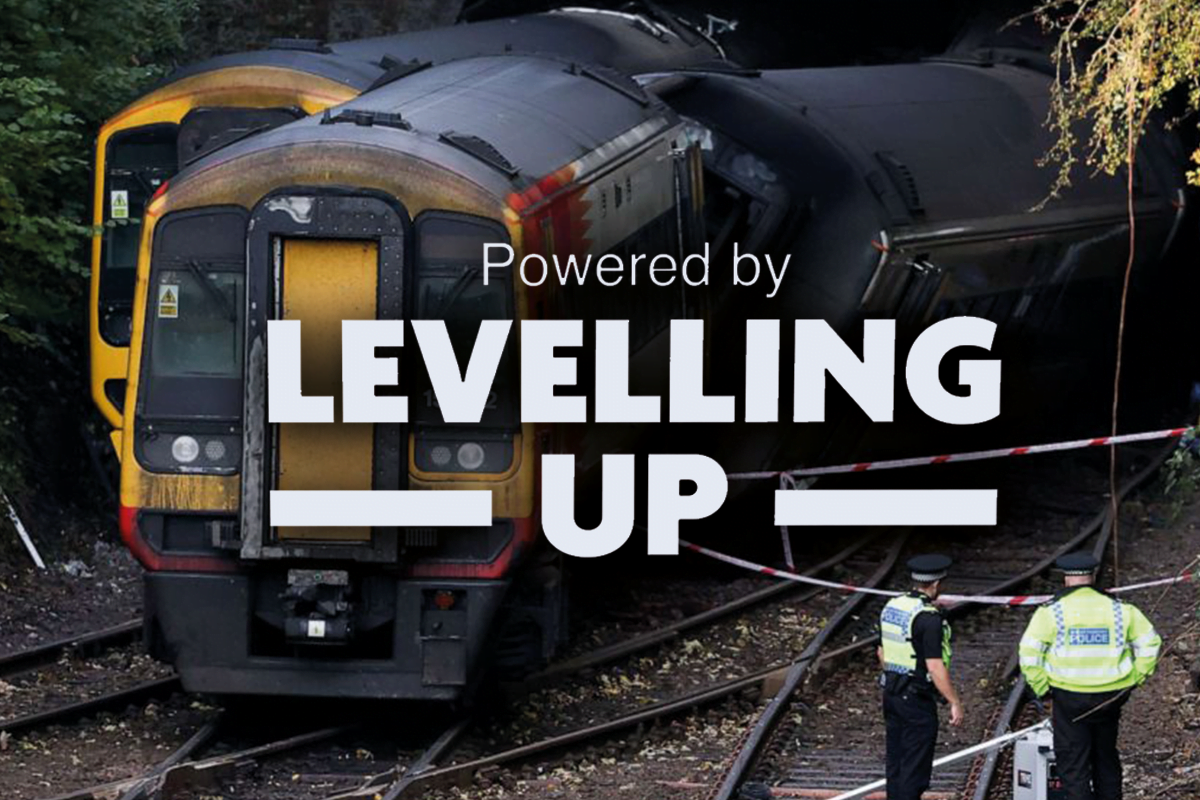From the get-go, Britain’s HS2 high-speed rail project has been mired by ballooning costs, delays, and cuts. Most recently, Rishi Sunak has indicated that the northern leg of the track – from Birmingham to Manchester – could be scrapped entirely.
This follows on from previous downgrades to the network by Sunak’s predecessors in Number 10. The eastern leg from Birmingham to Leeds was ditched long ago. Similarly with the link between the North West and Scotland. And now the latest Tory leader is set to remove the North from the picture entirely.
In the face of this shambles, and with the Tory Party conference set to take place from Sunday in Manchester, the Prime Minister has been keen to reaffirm his commitment to ‘levelling up’. The HS2 farce, however, reveals British capitalism’s inherent inability to do so.
Incompetence
Pushed by Boris Johnson on the back of the Tories’ 2019 election victory, ‘levelling up’ has been the party’s favourite buzzword in recent years.
This amorphous catchphrase encapsulates a vague collection of policies and promises, touted as a means of bringing ‘hope and opportunity’ to those areas of the country that have been ‘left behind’. Four years on, the Tories’ rhetoric has proven to be a load of hot air.
Figures provided to Parliament in March, for example, revealed that, of the £2.5bn that was allocated to intended levelling-up projects in the 2022/23 financial year, roughly a quarter went unspent. This includes £1bn of funds allotted to new affordable housing.
Pledges to tackle regional inequality have similarly proven to be worth less than the paper they’re written on.
One study released earlier this year found that regions in the North have been short changed by around £21m in terms of initial levelling-up funding from central government. Yorkshire and Humber saw a shortfall of £5m, while the North East received £13.4m less than expected.
The Department of Levelling Up has been quick to point the finger elsewhere when it comes to apportioning blame for its failures. ‘Economic volatility’, ‘delivery delays’, and even obscure references to Vladimir Putin – all these, and more, have been scapegoated for Tory incompetence.
Austerity
 Broken promises of ‘levelling up’ come on the back of over a decade of brutal austerity measures, carried out by successive Tory governments.
Broken promises of ‘levelling up’ come on the back of over a decade of brutal austerity measures, carried out by successive Tory governments.
As part of the Tories’ austerity agenda, local government has seen a 20% cut in real-terms funding over the past 12 years. This has led to a crisis in councils across the country, hitting children’s services, libraries, bin collections, adult social care, and more.
By the time the 2024/25 financial year comes round, it is projected that local authorities will face a funding gap of £4.5bn. According to the Local Government Association:
“Even if councils cut all spending on cultural and leisure services, such as libraries, swimming pools, open spaces, waste collection, and trading standards, they would still not have saved enough money to plug this gap.”
Local authorities have been plunged into chaos, as austerity bites and inflation runs rampant. Various councils are either at risk of bankruptcy, or have already fallen into it. The most recent example is Birmingham, the largest council in the country.
When a council declares itself to be in financial distress, this inevitably entails a ramping up of cuts and privatisation. In Birmingham City Council, Tory Levelling Up Secretary Michael Gove has parachuted in commissioners to assist in selling off publicly-owned assets, cutting jobs, and hiking council tax.
Any scraps offered by the government’s levelling-up programme, therefore, are a mere sticking plaster over a deep wound, designed to conceal what has been cut from council budgets over the past decade-or-more.
What the Tories give with one hand, they take away with the other. And as always, it is the working class that foots the bill.
Charade
Not only are promised levelling-up funds wholly inadequate, but they are also incredibly difficult to access.
Councils have to compete with each other through a bidding process – something that favours wealthier local authorities, which can afford and spare the additional administrative staff required to work on applications for central government money.
One senior councillor described having to write a 30,000-word bid for funding that was “more like a thesis”. This application was later flatly rejected, with no explanation whatsoever provided of any shortcomings. The council spent £30,000 on this whole charade.
By some estimates, if local authorities were to bid for every available piece of funding, this would cost a reported £2.25mn a year – a figure far greater than what they might stand to gain.
Devolution
 The government has paired their levelling-up strategy with what has been dubbed a ‘devolution revolution’, in which more powers are doled out to new regional mayors.
The government has paired their levelling-up strategy with what has been dubbed a ‘devolution revolution’, in which more powers are doled out to new regional mayors.
This has been hailed as a means of ‘empowering’ local communities and knocking regional inequality on the head.
What this really means is giving different areas of the country responsibility for administering Tory cuts themselves.
It is clear, meanwhile, that Starmer’s Labour offer no real alternative. Prominent regional mayors like serial-opportunist Andy Burnham may be vocal in demanding investment in northern cities and communities. But the party’s Blairite leadership is promising more of the same bitter medicine when it comes to cuts (where it is promising anything at all).
This is the real meaning of Starmer’s pledges to the capitalists of ‘fiscal responsibility’ and ‘sound money’.
And when it comes to major projects such as HS2, the Labour leaders are remaining similarly tight-lipped, providing no indication that they will offer former Red Wall areas and working-class towns the investment they need.
Capitalism in crisis demands austerity and attacks on the working class, in order to preserve the profits of the bosses. The fire-and-rehire tactics and strike-breaking antics seen in Labour councils such as Tower Hamlets and Coventry, respectively, are symptomatic of this.
Under capitalism, therefore, devolution simply offers local communities the opportunity to slit their own throats, rather than having Whitehall weld the knife directly.
Socialism
All of this shows what a pipedream ‘levelling up’ is under capitalism.
Tackling regional inequality would require a massive programme of investment in things such as housing, public services, industry, and rail networks. The ongoing HS2 fiasco, however, stands as just one monument amongst many demonstrating British capitalism’s inability to carry this out.
To see genuine investment in working-class communities across the country, we need socialist planning, with money and resources allocated according to need rather than profit.
This means expropriating the billionaire class, and nationalising the major construction companies and transport firms, under workers’ control, along with the big banks and the rest of the key levers of the economy.
On this basis, we could rationally and democratically plan the economy – channelling society’s plentiful wealth to where it is needed, and ensuring decent jobs, homes, healthcare, and education for all.
Only then can crumbling schools, beleaguered hospitals, dilapidated infrastructure, and potholed roads get the vital investment required to actually ‘level up’, in the interests of the entire working class.






